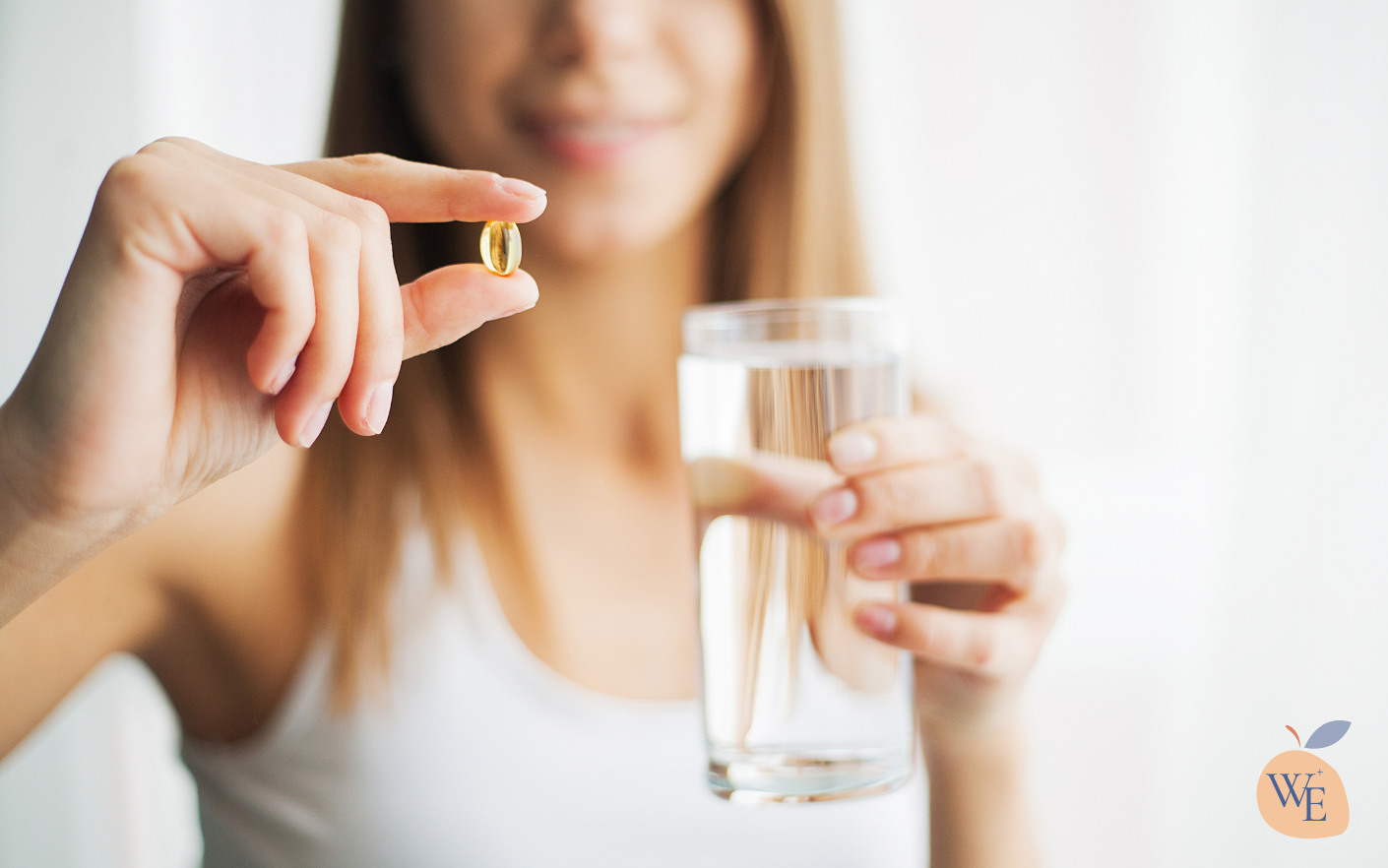The PCOS weight loss diet plan [Complete guide]

Women with Polycystic Ovary Syndrome (PCOS) often experience irregular periods, excess hair growth on the face and body, acne, weight gain, and other problems. The condition affects an estimated 5% of women in the United States.
What is Polycystic Ovary Syndrome (PCOS)?
Polycystic ovary syndrome (PCOS) is a common hormonal disorder that occurs when there is too much testosterone in the body. The most important thing to know about PCOS is that it cannot be cured, but the symptoms can be managed. If you suspect you hve PCOS, talk to your doctor about treatment options. There are many different types of treatments available, including birth control pills, hormone therapy, weight loss programs, and surgery.
Symptoms of PCOS
If you think you might have PCOS, talk to your doctor right away. He or she will perform tests to determine whether you do indeed have the condition. You should see an endocrinologist who specializes in women’s reproductive health.
The most common symptoms of PCOS include irregular periods, acne, hair loss, weight gain, and difficulty getting pregnant. Other symptoms include high blood pressure, diabetes, and depression.
Causes of PCOS
PCOS is a common hormonal disorder among women. It affects approximately 5% of women worldwide. In addition to causing weight gain, PCOS also leads to irregular menstrual cycles, acne, hair loss, and infertility.
The cause of PCOS is unknown, but researchers believe that genetics play a role. Women who have a family history of PCOS are at higher risk of developing the condition themselves. Other factors include obesity, stress, and certain medications.
Treatment options for PCOS
There are several treatment options available for PCOS. These include lifestyle changes, medications, and surgery. Lifestyle changes include eating a healthy diet and exercising regularly. Medications can help with certain symptoms, such as insulin resistance. Surgery can remove excess fat tissue and improve fertility.
Recommended reading: What is PCOS belly? How to treat it naturally

PCOS & insulin resistance
In otherwise healthy individuals, insulin rises briefly after eating, stimulating the body to take up glucose and convert it to energy.
When one has insulin resistance, though, the pancreas is creating more insulin to overcompensate for the rise in blood sugar levels. And as insulin levels continue to build, it can lead to inflammation, weight gain, and type 2 diabetes.
While the exact cause of PCOS is unknown, what is certain is that women with PCOS are intrinsically insulin resistant. In other words, insulin resistance isn’t a symptom but rather a key feature of PCOS.
For example, research shows that the skeletal muscle of overweight women with PCOS is deeply embedded with defects in glucose transport and insulin signaling.
Additionally, it’s the high insulin levels that harm ovulation and cause the ovaries to make excess testosterone.
PCOS diet plan for weight loss with low GI eating
The low glycemic diet plan is designed to lower blood sugar levels. This type of diet is often recommended for people who have diabetes, pre-diabetes, or metabolic conditions. It also helps women with polycystic ovary syndrome because it reduces insulin resistance.
The framework for a low glycemic diet is pretty straightforward and consists of combining protein, fat, and fiber (carbs). The low glycemic diet is not a no-carb or low-carb diet but a “healthy carbs” one. Carbs provide the body with energy and therefore are necessary in a well-rounded diet.
Well + Easy provides a holistic and whole foods-based approach to low glycemic eating — excluding artificial foods, and “fat-free” diet foods. In other words, we’ll always recommend real cow butter over something like margarine.

Key factors for weight loss you’ll want to follow
Protein
Protein is one of the most abundant macronutrients in our bodies. It is necessary for building muscle mass, repairing cells, producing hormones, and maintaining blood sugar levels. In addition, protein helps regulate body temperature and maintain bone density. A diet high in protein may help prevent osteoporosis.
Carbohydrates
Carbohydrates are the primary fuel source for the human body. They provide energy for daily activities and are stored in the liver and muscles. Carbohydrates are broken down into glucose, which is then converted into glycogen (a storage form of carbohydrate) in the liver and muscles before being released into the bloodstream. Glucose is the preferred type of carbohydrate for humans, but some people have difficulty metabolizing complex carbohydrates.
Fats
Fats are a major source of energy for the body. They are also critical components of cell membranes and play a role in hormone production. There are two types of fats: saturated and unsaturated. Saturated fats are solid at room temperature and do not easily melt. Unsaturated fats are liquid at room temperature and are often referred to as “good” fats. Both types of fat are necessary for good health.
Fiber
Fiber is a type of carbohydrate that cannot be digested by the body. Instead, fiber passes through the digestive system without being absorbed. It is important for regular bowel movements and helps lower cholesterol levels. Most fruits and vegetables contain fiber.
Water
Water is the most plentiful substance in the universe. Humans need about 2 quarts of water per day. Water is necessary for many bodily processes, including digestion, circulation, respiration, and excretion.

How to start a successful weight loss plan for PCOS
-
Establish your Diet Plan
The first step in managing PCOS is to reduce foods that cause inflammation and hormonal imbalances and focus on eating whole foods. Foods high on the glycemic index such as white breads, white flour pasta, white rice (excluding basmati and parboiled), and sweets you’ll want to reduce as much as possible and choose their healthy alternative. Whole foods are excellent as they are unprocessed and/or minimally processed. Examples of whole foods include vegetables, fruits, nuts, seeds, beans, meats, eggs, fish, and seafood.
2. Get started with Meal Plans
Once you have started eliminating inflammatory foods, then meal plans should be created. Meal plans help keep track of what you eat and how much you eat. Meal planning helps you stay focused on eating well and prevents you from overeating. Meal planning also keeps you accountable and makes sure you don't skip meals. Meal planning is especially helpful if you have trouble sticking to a diet plan. We have a free 7-day sample meal plan for you here.
Related reading: 5 benefits of low GI meal planning
3. Create an exercise schedule
Exercise is a great way to burn calories and lose weight. If you have difficulty losing weight, exercise may be the best solution. Exercise not only burns calories, but it also increases endorphins, serotonin, dopamine, and norepinephrine. Endorphins make us feel happy and increase our sense of wellbeing. Serotonin is responsible for regulating mood and appetite. Dopamine regulates motivation and reward. Norepinephrine is responsible for alertness and wakefulness. All three of these hormones are increased after exercising. Exercise also decreases cortisol levels, which is a hormone that causes stress. Cortisol is released when we are stressed out or anxious. When cortisol levels decrease, anxiety decreases.
It’s so crucial to start feeling better in your skin right now as the journey ahead will sometimes be challenging. Exercise boosts those “feel good” hormones and will support you in times of feeling low, sad, tired, or hopeless. You’ve got this, and Well + Easy is here to help.
4. Add in supplements
Supplements are a great way to add vitamins and minerals back into your body. Vitamins and minerals are necessary for many bodily processes including digestion, immunity, and brain function. Supplements are also great for building muscle mass.
- Hot herbal tea is one of the best ways to get direct access to nutrients that will clean out, prime, and support our internal system. Choose teas that showcase the key herbs for fertility and period care: Red Raspberry Leaf, Mint, and Nettle
- Top Supplements: Myo-Inositol & D-Chiro Inositol Blend, Ritual multivitamin, and Ritual prebiotic
5. Try new recipes
Recipes are a great way to get creative and try different dishes. You can create your own recipes or find recipes online. For inspiration on following a low glycemic diet to manage PCOS, check out these free recipe collections. All dairy-free and gluten-free!
Learn more about managing PCOS and healing from within with these 3 life-changing books
Take back control and confidence in your body. These are the books that will change everything. Read them, learn the practices, and slowly incorporate new tools and ways of being and healing and taking care of yourself into your life. Here are the top 3 books we recommend:
WomanCode: Perfect Your Cycle, Amplify Your Fertility, Supercharge Your Sex Drive, and Become a Power Source
A book that gives you a beautiful and thorough overview of your body. Whether you are suffering from irregular periods, fertility issues, depression, or lack of sex drive, Alisa Vitti says that meds and anti-depressants aren’t the only solutions. Groundbreaking and informative, WomanCode educates women about hormone health in a way that’s relevant and easy to understand. And the five-step protocol can markedly improve health and overall quality of life.

The Hormone Cure: Reclaim Balance, Sleep and Sex Drive; Lose Weight; Feel Focused, Vital, and Energized Naturally
A three-tiered treatment strategy that includes: Supplements and targeted lifestyle changes that address underlying deficiencies, herbal therapies that restore balance and optimize your body’s natural function, and bioidentical hormones—most available without a prescription. Dr. Sara Gottfried, a Harvard-educated physician and nationally recognized, board-certified gynecologist, refuses to accept that being a woman means feeling overwhelmed or that popping pills is the new normal.
The Egg Quality Diet: A clinically proven 100-day fertility diet to balance hormones, reduce inflammation, improve egg quality & optimize your ability to get & stay pregnant
The Egg Quality Diet is the culmination of what Aimee Raupp has found, during her two decades of clinical practice, to be the most effective nutritional approach to optimizing fertility. This diet has been proven to work not in a randomized control trial (RCT) but in real life, on thousands of real women like you. Real women who have been told they have no good eggs left or are too old or they are in menopause.

Frequently asked questions about a PCOS diet plan
Which diet plan is best for PCOS weight loss?
A healthy diet is essential for anyone who wants to lose weight. However, if you have PCOS, you may need to take extra care when choosing foods. This is because certain foods can trigger symptoms such as acne, hair growth, and irregular periods.
You’ll want to focus on keeping foods and prepared meals as low glycemic as possible — eating lots of fruits and vegetables, whole grains, lean protein, low fat dairy products, nuts and seeds, and limiting refined sugar and processed foods.
Read: Low GI foods for PCOS - Which ones are good for me?
Which fruit is good for PCOS weight loss?
According to Dr. Oz, pomegranate juice may help women suffering from polycystic ovary syndrome (PCOS), a condition that causes irregular periods and excessive hair growth. It also helps regulate insulin levels and reduce inflammation.
Additionally, a study published in the journal Obesity found that eating one cup of blueberries daily may help women with polycystic ovary syndrome lose weight. Researchers suggest that the antioxidants in blueberries may help regulate insulin levels, which could lead to lower blood sugar and fat storage.
Can PCOS be resolved with weight loss?
Yes, according to Dr. Michael Mosley, who says that PCOS is caused by insulin resistance, which leads to excess fat storage. He adds that if you lose weight, you'll see improvements in your symptoms.
What should be avoided in PCOS?
Avoiding certain foods may help you lose weight faster. Foods high on the glycemic index such as white breads, white flour pasta, white rice (excluding basmati and parboiled), and sweets can cause insulin spikes which lead to fat storage. Instead, opt for lean proteins like chicken breast, fish, turkey, beans, nuts, and seeds. These foods are low in carbs and high in protein, making them ideal for weight loss.
You Might Also Like:
- How following a low glycemic diet supports PCOS
- Top 8 barriers to weight loss and how to combat them



